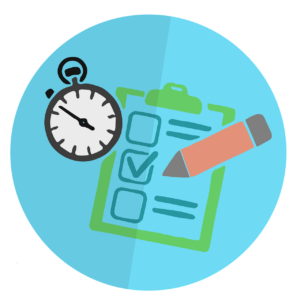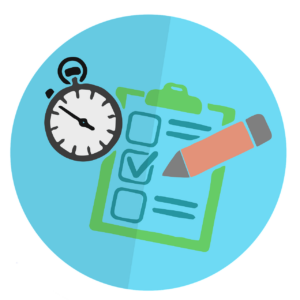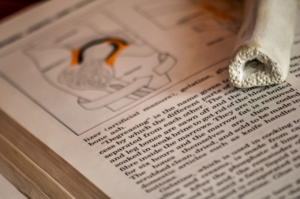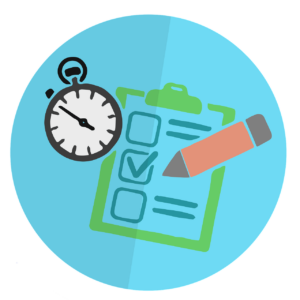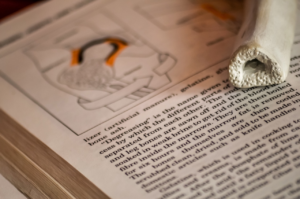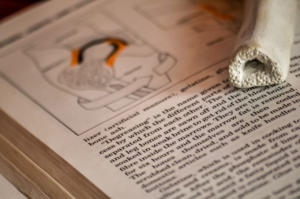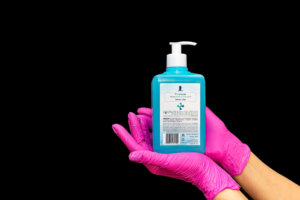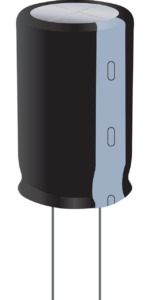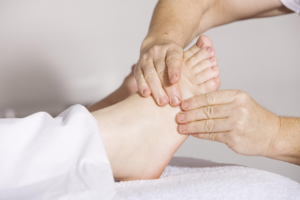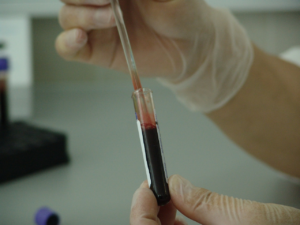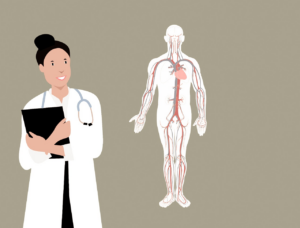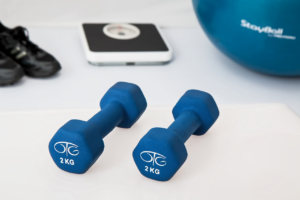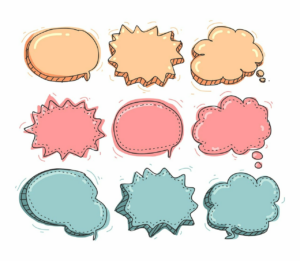Are you considering pursuing a career in practical nursing? If so, you will likely need to take a practical nursing entrance exam as part of the application process. This exam is designed to assess your knowledge and skills in areas such as anatomy and physiology, pharmacology, and nursing fundamentals.
While the idea of taking an entrance exam may be daunting, there are steps you can take to prepare and increase your chances of success.
In this article, we will provide you with tips and study resources to help you prepare for the practical nursing entrance exam. By understanding the exam format and content, developing a study plan, practicing test-taking strategies, and utilizing study resources, you can approach the exam with confidence and increase your chances of success.
So, let’s get started!
Key Takeaways
- Preparation and study resources can increase chances of success on the exam
- Developing a study plan with specific goals and deadlines is crucial
- Time management and test-taking strategies are important for success
- Prioritizing self-care is crucial for mental and physical well-being during exam preparation
Understand the Exam Format and Content
You’ll need to understand the exam format and content by familiarizing yourself with the types of questions and topics covered.
The practical nursing entrance exam typically consists of multiple-choice questions that assess your knowledge of basic nursing concepts and skills. Some questions may require you to interpret data, apply critical thinking, or demonstrate problem-solving abilities.
Topics covered in the exam may include anatomy and physiology, pharmacology, nutrition, medical terminology, and patient care.
To prepare for the exam, you should start by reviewing the topics that are likely to be covered and identifying areas where you need more practice. You can find study resources such as review books, online practice tests, and study groups to help you prepare.
Test anxiety is common among many students, but you can reduce your anxiety by following a structured study plan, taking regular breaks, and practicing relaxation techniques such as deep breathing or visualization.
By understanding the exam format and content and preparing adequately, you can increase your chances of success on the practical nursing entrance exam.
Develop a Study Plan
Developing a study plan is crucial for success on the practical nursing entrance exam. Time management is essential, and having a plan in place can help you stay organized and on track. Here are four tips to help you develop a study plan:
-
Start by assessing your current knowledge and identifying areas of weakness. This will help you prioritize what to study and allocate your time accordingly.
-
Break down the material into manageable chunks and assign specific study goals and deadlines for each section. This will help you stay focused and motivated as you work towards your overall goal of passing the exam.
-
Use a variety of study techniques, such as flashcards, practice quizzes, and review sessions with classmates or tutors. This will help you retain information and reinforce your knowledge.
-
Build in time for breaks and self-care activities to help manage stress and maintain motivation. Taking care of your physical and mental health is just as important as studying for the exam.
Practice Test-Taking Strategies
Mastering effective test-taking strategies is essential for achieving success on the PN exam. This involves incorporating techniques such as time management and staying calm under pressure. Time management is critical during the exam, as you will need to answer all the questions within a limited time frame. To ensure that you manage your time effectively, practice taking timed tests during your study sessions. This will help you get used to answering questions under time pressure and will enable you to identify areas where you need to work on your speed.
Another important strategy is to manage test anxiety. Test anxiety can be overwhelming, and it can affect your performance negatively. To overcome it, start by preparing adequately for the exam. This will help you feel more confident and less anxious during the test. Additionally, practice relaxation techniques such as deep breathing, visualization, and positive self-talk. Finally, during the exam, focus on the questions and avoid distractions. If you feel overwhelmed, take a few deep breaths, and refocus your mind. By using effective time management and managing your test anxiety, you can increase your chances of success on the PN exam.
| Time Management | Test Anxiety | Positive Self-Talk |
|---|---|---|
| Staying on track with time limits | Feeling overwhelmed | I can do this |
| Practicing timed tests | Panic attacks | I am prepared |
| Identifying areas where you need to work on your speed | Difficulty concentrating | I will succeed |
| Prioritizing questions | Negative self-talk | I am capable |
| Avoiding distractions | Nervousness | I am in control |
Utilize Study Resources
Using study resources can greatly enhance your chances of success on test day, allowing you to feel more confident and prepared. Here are some effective techniques and study habits that you can utilize:
-
Review the Exam Content: Before diving into studying, it’s essential to know the areas that will be covered in the exam. This will help you focus your study efforts and prioritize the topics that need more attention.
-
Practice with Sample Questions: Practicing with sample questions is a great way to test your knowledge and identify areas where you need improvement. Many study resources provide practice questions that simulate the actual exam, giving you a sense of what to expect on test day.
-
Use Flashcards: Flashcards are a simple and effective way to memorize key concepts and terminologies. You can create your own flashcards or use pre-made ones, which are readily available in various nursing entrance exam study resources.
-
Join Study Groups: Studying with peers can be a great way to stay motivated and learn from each other. Joining a study group can also help you cover more material, as members can take turns teaching and reviewing topics.
By utilizing these study resources and techniques, you can feel more confident and prepared for the practical nursing entrance exam. Remember to stay consistent with your study habits and practice regularly to achieve your desired results.
Seek Support from Peers and Instructors
To excel in your practical nursing entrance exam, it’s important to seek support from your peers and instructors. Joining a study group can be a great way to stay motivated and learn from others.
Don’t be afraid to ask for help from your instructors. Attend review sessions to get a better understanding of the material.
To sum up, seeking support and asking for help are important steps towards success in your practical nursing entrance exam.
Join a study group
Joining a study group can be helpful when preparing for the practical nursing entrance exam. Not only does it provide a sense of community and support, but it also allows for the exchange of ideas and knowledge.
Here are some benefits of joining a study group:
- You can share study materials and resources with each other.
- You can discuss difficult concepts and clarify any misunderstandings.
- You can hold each other accountable for studying and staying on track.
- You can practice mock exams and quizzes together.
Of course, there may also be some challenges when it comes to joining a study group. You may have conflicting schedules or personalities that clash. However, if you find the right group and commit to it, the benefits can outweigh any obstacles.
So, consider joining or starting a study group to help you prepare for the practical nursing entrance exam.
Ask for help from instructors
Don’t be afraid to ask your instructors for help if you’re struggling with the practical nursing entrance exam. They’re there to support you and want to see you succeed.
Instructors can provide valuable insight into the exam and offer tips on how to approach certain questions. They can also help you identify areas where you may need to focus your studying.
One of the benefits of seeking help from your instructors is the opportunity for mentorship. Instructors can serve as mentors and provide guidance throughout your nursing education. They can offer advice on how to balance coursework and clinicals, as well as provide insight into the nursing profession.
Additionally, communication is key in nursing, and seeking help from your instructors can help you develop strong communication skills.
Don’t hesitate to reach out to your instructors for help and guidance as you prepare for the practical nursing entrance exam.
Attend review sessions
Attending review sessions is a great way to reinforce your knowledge and gain a better understanding of the material covered on the practical nursing entrance exam. These sessions are usually conducted by experienced instructors who provide valuable insights and tips on how to tackle difficult questions.
The benefits of attendance are numerous, including the opportunity to ask questions, clarify doubts, and interact with other students who are preparing for the same exam. To make the most out of review sessions, it’s important to actively participate and engage with the material being presented.
This means taking notes, asking questions, and solving practice problems. You can also form study groups with other students to discuss the material and share study resources. By attending review sessions and actively participating in them, you can boost your confidence and improve your chances of passing the practical nursing entrance exam.
Take Care of Yourself
Make sure you prioritize self-care while preparing for the practical nursing entrance exam, as it’s crucial for your mental and physical well-being.
Studying for the entrance exam can be stressful, and it’s essential to take care of yourself during this time. Self-care strategies, such as getting enough sleep, eating nutritious meals, and exercising regularly, can help you stay focused and energized.
In addition to self-care strategies, stress management techniques can also be useful during this time. Taking breaks when you need them, practicing deep breathing or meditation, and talking to a counselor or trusted friend can all help you manage stress and anxiety.
Remember, taking care of yourself is not a luxury but a necessity, and it can ultimately help you perform better on the practical nursing entrance exam.
Frequently Asked Questions
How much time should I dedicate to studying for the practical nursing entrance exam?
When it comes to studying for the practical nursing entrance exam, you’ll want to focus on effective studying strategies and smart time management. It’s important to give yourself enough time to review all of the material thoroughly, but it’s equally important not to burn out by cramming too much in at once.
Start by breaking down the material into manageable chunks and creating a study schedule that allows for regular breaks and rest periods. Figure out which study methods work best for you, whether it’s reading and taking notes, flashcards, or practice tests.
Don’t forget to take care of yourself by getting enough sleep, exercise, and healthy meals. With the right strategies and time management, you’ll be well-prepared for the practical nursing entrance exam.
Are there any specific study materials or resources that are highly recommended for this exam?
To prepare for the Practical Nursing Entrance Exam, it’s highly recommended that you use study materials such as textbooks, online resources, and practice exams. These materials will help you get familiar with the content and format of the exam, as well as build your confidence and reduce test anxiety.
Practice exams, in particular, can give you a good idea of the types of questions you can expect and help you identify areas where you need to focus your studying.
Look for reputable sources of study materials and practice exams, and make sure to give yourself enough time to review and practice before the exam date.
Can I retake the exam if I don’t pass the first time?
If you don’t pass the exam on your first attempt, you may be wondering if you can retake it. The answer is yes, you can.
However, there are some eligibility criteria that you need to meet before you can retake the exam. For example, you may have to wait a certain amount of time before you can retake the exam, or you may have to pay an additional fee.
It’s important to check with the organization administering the exam to find out what the specific rules are. Keep in mind that while it can be disappointing to not pass on the first try, it’s not uncommon, and many people find success after retaking the exam.
Is there a specific score or passing threshold that I need to achieve in order to be accepted into a practical nursing program?
In order to be accepted into a practical nursing program, there’s typically a passing threshold that you need to achieve. This passing threshold is often determined by the admission requirements of the specific program you’re applying to.
It’s important to research the admission requirements of each program you’re interested in, as they may vary. Some programs may require a minimum score on the entrance exam, while others may consider other factors such as GPA or previous healthcare experience.
It’s important to strive for the highest score possible on the entrance exam to increase your chances of being accepted into the program of your choice.
How long does the practical nursing entrance exam typically take to complete?
The practical nursing entrance exam usually takes around two to three hours to complete, depending on the format of the exam. The test can be administered in a computer-based or paper-based format. If the exam is computer-based, it may take less time to complete, as the test is timed and each section may have a specific time limit.
However, if the exam is paper-based, it may take a little longer to complete as you’ll have to fill in the answer sheet manually. Regardless of the format, it’s important to arrive early and be prepared with all necessary materials, such as a form of identification and any required calculators or pencils.
Conclusion
So there you have it, tips and study resources to help you prepare for the practical nursing entrance exam.
Remember to understand the exam format and content, develop a study plan, practice test-taking strategies, utilize study resources, seek support from peers and instructors, and take care of yourself.
It may seem overwhelming at first, but with dedication and effort, you can achieve success on your exam and begin your journey towards becoming a practical nurse.
Best of luck to you on your journey!

















